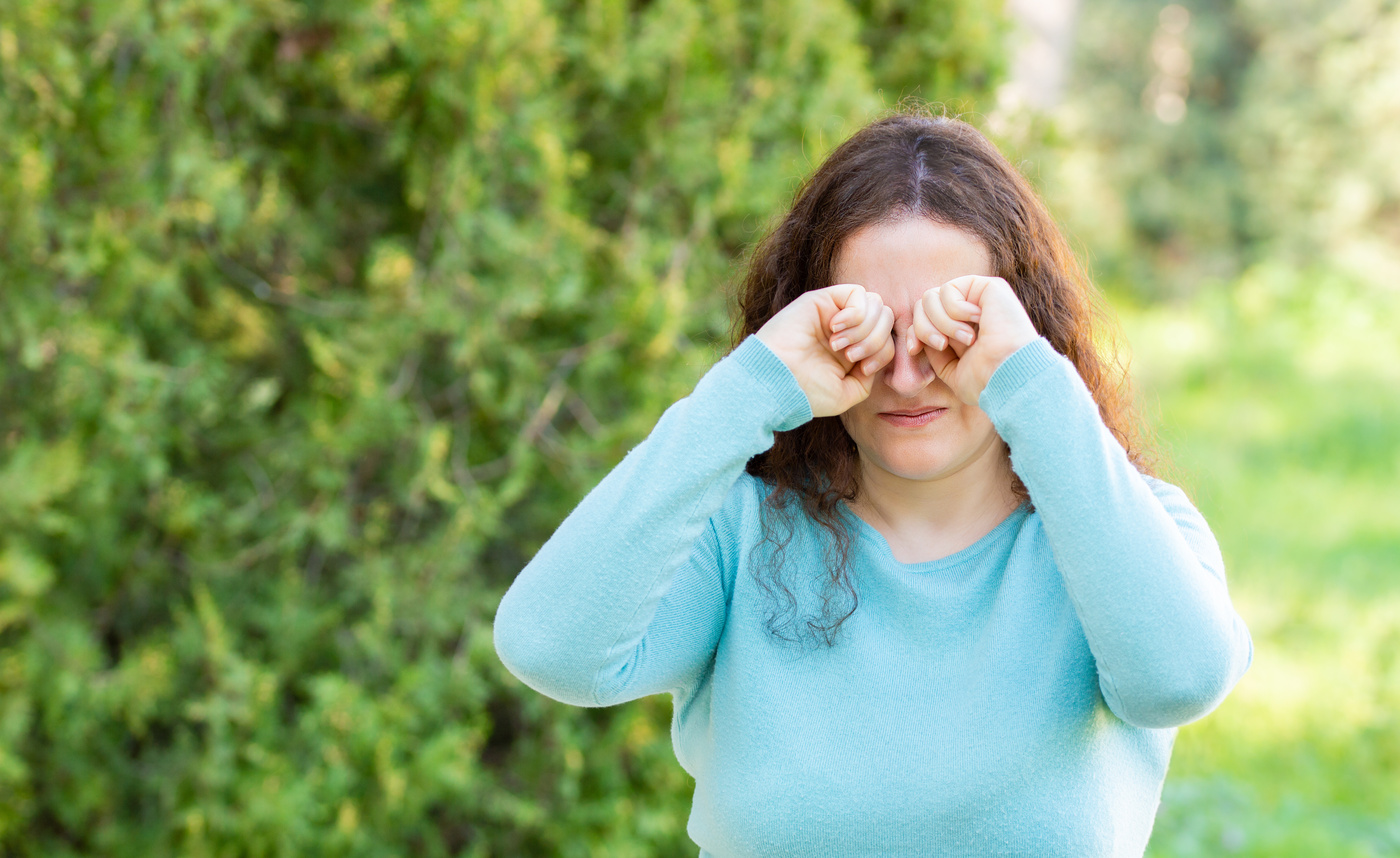
EYE ALLERGIES: WHAT YOU SHOULD KNOW
WHAT CAUSES EYE ALLERGIES ?
Eye allergies are a reaction to indoor and outdoor allergens that get into your eyes. Examples of these are pollen, mold spores, dust mites and pet dander. Eye allergies are not contagious. They cannot be spread to another person.
Irritants like dirt, smoke, chemicals, and chlorine can also cause swelling and redness of the eyes. This reaction is not an allergic reaction. Viruses and bacteria can also cause the same irritation of the eyes. This reaction is also not an allergic reaction. Some medications and cosmetics can also cause eye allergy symptoms.
The eyes are an easy target for allergens and irritants because they are exposed and sensitive. The body responds to these allergens by releasing chemicals, including histamines, which produce the inflammation.
Pink eye is something different. It is a viral or bacterial infection of the eye tissue. It’s called infectious conjunctivitis. It usually starts in one eye and can spread easily to the other eye within a day or two. This eye condition is easily transmitted from person to person. But it is usually not a serious health risk if diagnosed right away.
SYMPTOMS:
The common signs and symptoms of eye allergies are:
Redness
Itchiness
Burning feeling
Watery eyes
Swollen eyelids
Feeling like there is dirt or grit in your eyes
You may also have a runny or itchy nose, sneezing, coughing, or a sinus headache. Many also find that their vision is briefly blurred or that they feel distracted, unproductive, or tired.
TREATMENTS
The first and best option is to avoid contact with substances that trigger your eye allergies. If that is not enough, consult your optometrist to see which of the following treatments is right for you:
Saline eye drops to wash away the allergens
Over-the-counter medicine or eye drops (short-term use)
Prescription treatments from your doctor
Allergy shots (immunotherapy) from your doctor
Eye allergy symptoms may disappear completely when the allergen is removed or after the allergy is treated. Talk to your pharmacist and health care provider about what is best for you.
PREVENTION
The first and best option is to avoid contact with things that trigger your eye allergies. Other tips are:
Don’t touch or rub your eye(s).
Wash your hands often with soap and water.
Use a vacuum with a CERTIFIED asthma & allergy friendly® filter to reduce exposure to allergens.
Wash your bed linens and pillowcases in hot water and detergent to reduce allergens.
Use allergen covers (encasements) for pillows, comforters, duvets, mattresses and consider using them for box springs.
Keep pets out of the bedroom to reduce pet dander allergen in your bedding.
Wear sunglasses and a wide-brimmed hat to help keep pollen from getting into your eyes.
Keep windows closed during high pollen and mold seasons. Use the air conditioner in your car and home. Also, think about using a CERTIFIED air filter.


